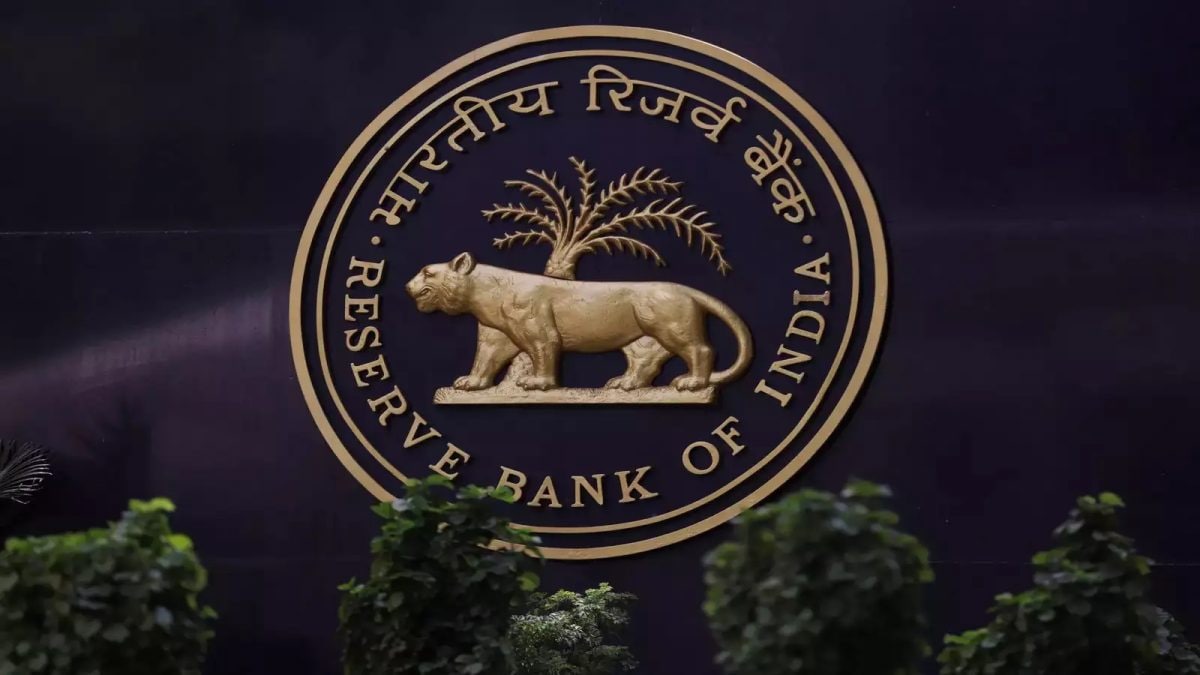Business
Pakistan faces risk of corruption-related money laundering | The Express Tribune

IMF reports says Pakistan’s anti-money laundering enforcement compromised by political pressure, weak oversight
An employee counts Pakistani rupee notes at a bank in Peshawar on August 22, 2023. Photo: Reuters
The International Monetary Fund has said that Pakistan faces significant risks of corruption-related money laundering, while accountability remains weak, as high-profile or politically sensitive cases often face external interference that limits the independence of investigations.
“Pakistan faces significant risks of corruption-related money laundering. High-risk sectors include banking, real estate, construction, politically exposed persons, and public procurements,” states the Governance and Corruption Diagnostic Report released by the Ministry of Finance on November 19.
The report added that the misuse of corporate vehicles, shell companies, and informal value transfer systems are common techniques used to conceal the origins of corruption proceeds in Pakistan.
The International Monetary Fund (IMF) said judicial constraints have further weakened enforcement outcomes, with delays in prosecution, lengthy trial processes, and low conviction rates reducing the deterrent effect of anti-money laundering (AML) enforcement.
While highlighting the persistent and corrosive nature of corruption in Pakistan, the IMF also acknowledged that shifting demographics — with 60% of the population under the age of 30 — and disruptive communication technologies are reshaping public tolerance for corruption.
“Politicians are recognising that addressing corruption is crucial to addressing citizens’ concerns for better service delivery,” the report noted.
The Fund added that over 60% of Pakistan’s 247 million people are below the age of 30, increasingly urbanised, and active on social media. This emerging demographic is less deferential and more sceptical of government institutions.
“Young people are increasingly likely to vote. These changing dynamics are focusing attention on service delivery, how services are delivered, and who has access to them.”
The IMF said Pakistan has taken some steps to enhance financial sector oversight in line with AML and counter-terrorism financing priorities. Reforms have improved risk-based supervision by financial regulators through targeted on-site and thematic inspections to assess banks’ compliance with AML obligations, particularly in high-risk areas such as Politically Exposed Person (PEP) onboarding and Suspicious Transaction Report (STR) generation.
However, it said “high-profile or politically sensitive cases often face external interference, limiting the independence of investigations and undermining public confidence in accountability mechanisms.”
For corruption-linked money laundering complaints, NAB’s turnaround time is four months just to open a formal enquiry. A complaint must first undergo a rigorous administrative vetting process before an investigation can be launched — a process that often results in complaints not being pursued, the report noted.
The IMF highlighted multiple implementation challenges that hinder full enforcement of the AML framework. These include weak institutional coordination, poor enforcement of preventive measures, and gaps in operational follow-through.
It added that the absence of strong institutional accountability mechanisms has weakened overall system effectiveness. There is no clear framework to assess the performance of authorities in preventing money laundering linked to corruption.
Pakistan informed the IMF that, during 2023–2024, monetary penalties amounting to more than Rs944 million were imposed on 17 banks for money laundering-related violations. But the IMF said public concerns persist regarding the impartiality of key AML enforcement institutions.
“Stakeholders frequently cite concerns about impartiality and selective enforcement of AML obligations, particularly when politically exposed persons or high-level officials are involved.”
“Supervisory and enforcement agencies do not appear to collect or publish disaggregated statistics on corruption-linked suspicious transactions, inspections, investigations, or sanctions,” the report said.
The IMF also commented on the FBR’s capacity to regulate Designated Non-Financial Businesses and Professions (DNFBPs). “The FBR’s capacity to supervise DNFBPs is particularly constrained, given the number of entities under its remit and the limited staff available for inspections and outreach.”
Some DNFBPs — especially in the real estate sector — are considered high-risk for facilitating corruption-based money laundering. Without sufficient staffing and technical expertise, supervision in these areas is likely to remain reactive and inconsistent, the Fund said.
The IMF added that Pakistan’s law enforcement agencies continue to face persistent challenges in pursuing corruption-linked money laundering cases. The NAB and FIA share the mandate to investigate and prosecute corruption-related money laundering, but both agencies often lack sufficient trained personnel in these specialised areas.
Beneficial Ownership remains hidden
Pakistan was required to publish the names of beneficial owners of companies to ensure greater transparency.
“The SECP is responsible for overseeing the beneficial ownership framework and is yet to establish a registry to maintain BO information,” the report added. Verification mechanisms for beneficial ownership data also remain underdeveloped, according to the IMF.
The SECP requires legal entities to declare that beneficial ownership information is maintained at the time of incorporation, upon any change of ownership, and annually. However, the IMF said that actual beneficial ownership information is often not declared, and there is limited evidence of systematic verification or auditing of these disclosures.
The IMF noted that public access to beneficial ownership data is not readily available, which limits transparency and accountability. Although the public may submit a Form-19 declaration to request beneficial ownership information, such approvals are rare, according to the lender.
It added that beneficial ownership data is not publicly accessible in Pakistan, reducing opportunities for independent scrutiny. The Fund further noted that recent amendments to data privacy laws now allow law enforcement agencies to obtain beneficial ownership information.
Business
Rolls-Royce makes £1 billion more profit after major defence orders

Rolls-Royce has revealed its annual profit surged by £1 billion and upgraded its outlook for the years ahead, following major military aircraft orders and soaring demand for powering data centres.
The engineering giant said its business divisions were in a good place to benefit from “key global trends” over the coming years.
It reported an underlying operating profit of £3.5 billion for 2025, a jump of 40% from the £2.5 billion made the prior year.
Underlying revenues surpassed £20 billion over the year, up about a 10th on 2024.
This was driven by profit and sales growth across its civil aerospace, defence, and power businesses.
Rolls-Royce said demand for its defence products was strong and it secured major orders during 2025.
This included contracts worth more than £1.5 billion with the UK’s Ministry of Defence and the US’s Department of War for EJ200 and AE 2100 engines to power military aircraft.
New orders for the Eurofighter aircraft engines from Italy, Germany and Spain, as well as export agreements from Turkey, will drive production into the 2030s, it said.
Furthermore, Rolls-Royce said it was benefiting from growing demand for power generation, driven by data centres with revenues up by more than a third.
Rolls-Royce said it was now expecting underlying operating profits to increase to between £4.9 billion and £5.2 billion by 2028 following the strengthened financial performance in 2025.
This is significantly higher than the £3.6 billion to £3.9 billion range that it had previously been targeting.
Chief executive Tufan Erginbilgic said growth would not have been possible “before our transformation”, with the business making £600 million worth of cost savings since 2022.
“With our new capabilities and mindset, we have navigated challenges from supply chain to tariffs, and delivered a strong performance in 2025, all while we built the foundations for significant growth for years to come,” he said.
“Based on our 2026 guidance, we expect to deliver underlying operating profit within the prior mid-term guidance range two years earlier than planned.
“Beyond the mid-term we continue to see significant growth from existing businesses as well as from new business opportunities.”
Business
RBI’s Rs 25,000-Crore Switch Auction On March 2nd And Its Impact On Bond Markets, Government Debt Strategy | Explained

Last Updated:
RBI Switch Auction On March 2: The Reserve Bank of India will conduct a government securities switch auction worth Rs 25,000 crore on March 2 between 10:30 AM and 11:30 AM


In the latest exercise, all securities, having maturities in FY27, are being replaced with bonds maturing after FY32.
RBI Switch Auction On March 2: The Reserve Bank of India (RBI) will conduct a government securities switch auction worth Rs 25,000 crore on March 2 between 10:30 AM and 11:30 AM, with results to be declared the same day and settlement scheduled for March 4. The move marks the third such operation this month and is aimed at smoothing India’s future debt repayment profile.
What is a switch auction?
A switch auction is a debt management tool through which the government exchanges bonds that mature soon with bonds that mature later. Instead of repaying investors in cash when near-term securities mature, the government offers them longer-dated securities. This effectively postpones repayment obligations without increasing total debt.
In the latest exercise, all securities, having maturities in FY27, are being replaced with bonds maturing after FY32, according to RBI data.
Why is RBI conducting it now?
The key trigger is the heavy redemption pressure expected in FY27, when government securities worth about Rs 5.47 lakh crore are scheduled to mature. By replacing these with bonds maturing after FY32, the authorities are spreading repayment obligations across future years. This reduces refinancing risk and prevents sudden spikes in borrowing needs.
How does it help the government?
India has already budgeted gross market borrowing of Rs 17.2 lakh crore. Large redemptions in a single year would force the government either to borrow more or use fiscal resources for repayment. Switch auctions smooth this maturity profile, making debt servicing more predictable and fiscally manageable.
What has happened so far this month?
Before this latest announcement, the RBI conducted two switch auctions in which securities worth Rs 84,804 crore were bought back and replaced. The repeated use of this tool signals a proactive debt-management strategy rather than a reactive measure.
Why markets watch switch auctions closely
Bond investors track such operations because they affect liquidity, yield curves and supply of long-term securities. Extending maturities can reduce pressure on near-term yields while increasing supply at the long end, influencing pricing across the sovereign curve.
The broader takeaway
The latest switch auction is part of a deliberate strategy to manage India’s rising debt stock more efficiently. By pushing repayments further into the future and avoiding bunching of maturities, policymakers aim to maintain stability in government borrowing costs and ensure smoother fiscal operations in coming years.
Follow News18 on Google. Join the fun, play games on News18. Stay updated with all the latest business news, including market trends, stock updates, tax, IPO, banking finance, real estate, savings and investments. To Get in-depth analysis, expert opinions, and real-time updates. Also Download the News18 App to stay updated.
February 26, 2026, 11:11 IST
Read More
Business
Vellayan Subbiah To Exit Cholamandalam Investment Finance Under Murugappa Family Pact

Last Updated:
Vellayan Subbiah, a scion of the Murugappa family, has reached a settlement with other promoter branches to realign ownership


Cholamandalam Investment Finance
Vellayan Subbiah, a scion of the Murugappa family, has reached a settlement with other promoter branches to realign ownership across key group companies, according to a report by Moneycontrol.com, citing people familiar with the matter. The agreement is expected to see Subbiah give up stake exposure linked to Cholamandalam Investment and Finance Company while consolidating his position in Tube Investments of India and CG Power and Industrial Solutions.
The arrangement, finalised after more than two years of negotiations, forms part of a broader plan by the Murugappa Group to separate ownership of the century-old conglomerate among three promoter factions while ensuring business continuity. Under the settlement, Subbiah is expected to relinquish exposure to Cholamandalam Investment — the group’s flagship lending arm — and instead retain and strengthen his alignment with Tube Investments and CG Power, including taking over or retaining stakes tied to those companies within the extended promoter structure, the report said. Emails sent to Subbiah and the Murugappa Group did not receive a response until publication.
The realignment follows prolonged internal discussions over the division of the diversified business empire, which reported revenue of more than $9 billion in FY23, after five generations of joint ownership through the family holding company Ambadi Investments.
Negotiations had earlier faced hurdles due to significant valuation divergences across group companies. As previously reported by The Economic Times on August 19, 2024, the turnaround of businesses overseen by Subbiah — particularly CG Power, Tube Investments and Cholamandalam Finance — had emerged as a sticking point in share-swap discussions among family factions.
The revival of CG Power proved especially pivotal. Since Tube Investments acquired control in 2020, CG Power has deleveraged, restored profitability and benefited from investor interest in domestic manufacturing, railways, power equipment and electronics supply chains. Its stock has surged since the takeover, making it one of the group’s most valuable listed assets. Tube Investments has also diversified beyond its legacy engineering base into green mobility, contract manufacturing and specialised industrial segments, strengthening its market position.
Cholamandalam Investment, meanwhile, has grown into one of India’s most valuable non-bank lenders, with a market capitalisation exceeding Rs 1 lakh crore. The uneven appreciation in these businesses complicated efforts to carve out three equal promoter blocs, with one faction seeking revisions to earlier share-swap assumptions and another resisting reopening agreed terms, people cited by Moneycontrol.com said.
Promoter ownership across Murugappa companies is largely routed through holding vehicles rather than direct individual shareholdings, but the concentration of value highlights why these firms were central to negotiations. The promoter group’s roughly 51–52 percent stake in Cholamandalam Investment is estimated to be worth about Rs 55,000–60,000 crore at current market levels. In Tube Investments, promoter ownership of around 45–46 percent translates into holdings valued at approximately Rs 20,000–22,000 crore. Through Tube Investments’ controlling position in CG Power, the promoter group effectively holds about 58–59 percent of that company, valued at roughly Rs 45,000–50,000 crore.
Beyond these, the family controls about 56–57 percent in Coromandel International, worth around Rs 18,000–20,000 crore; 42–43 percent in Carborundum Universal, valued near Rs 9,000–10,000 crore; and 44–45 percent in EID Parry, worth roughly Rs 3,500–4,000 crore. Tube Investments also indirectly controls about 70 percent of Shanti Gears, valued at approximately Rs 2,500–3,000 crore.
The final arrangement appears to align ownership more closely with operational leadership. Subbiah, a fourth-generation member of the family, is widely credited within the group for steering the revival of CG Power and expanding Tube Investments into new manufacturing and mobility segments, making these businesses natural anchors for his promoter bloc under the new structure.
The Murugappa Group, which comprises nearly 30 companies across fertilisers, engineering, financial services, abrasives, sugar and mobility solutions, operates under a long-standing governance charter that separates ownership from management, the Moneycontrol.com report noted.
Follow News18 on Google. Join the fun, play games on News18. Stay updated with all the latest business news, including market trends, stock updates, tax, IPO, banking finance, real estate, savings and investments. To Get in-depth analysis, expert opinions, and real-time updates. Also Download the News18 App to stay updated.
February 26, 2026, 10:51 IST
Read More
-

 Entertainment1 week ago
Entertainment1 week agoQueen Camilla reveals her sister’s connection to Princess Diana
-

 Tech1 week ago
Tech1 week agoRakuten Mobile proposal selected for Jaxa space strategy | Computer Weekly
-

 Politics1 week ago
Politics1 week agoRamadan moon sighted in Saudi Arabia, other Gulf countries
-

 Entertainment1 week ago
Entertainment1 week agoRobert Duvall, known for his roles in "The Godfather" and "Apocalypse Now," dies at 95
-

 Politics1 week ago
Politics1 week agoTarique Rahman Takes Oath as Bangladesh’s Prime Minister Following Decisive BNP Triumph
-

 Business1 week ago
Business1 week agoTax Saving FD: This Simple Investment Can Help You Earn And Save More
-

 Tech1 week ago
Tech1 week agoBusinesses may be caught by government proposals to restrict VPN use | Computer Weekly
-

 Sports1 week ago
Sports1 week agoUsman Tariq backs Babar and Shaheen ahead of do-or-die Namibia clash














